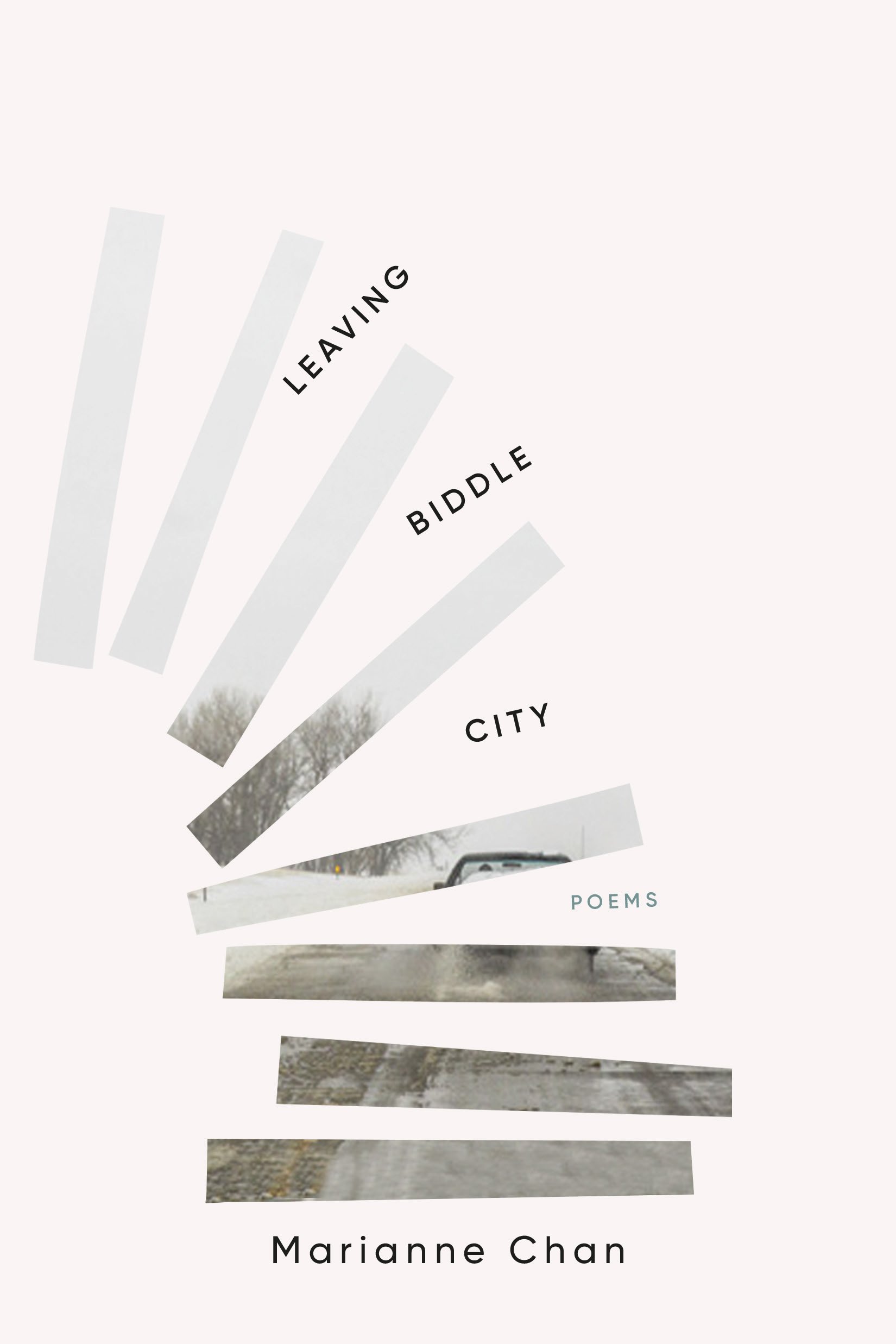Cover designed by Emily Mahon
Order here.
********
Winner of the 2025 ALA Notable Book Award for Poetry
2024 Poetry Foundation Staff Picks: A Few of Our Favorite Books from 2024
Electric Literature, "8 Poetry Collections with a Compelling Sense of Place"
Electric Literature, “7 Books About the Midwest by Asian American Writers”
A Barrelhouse Conference Featured Book
A coming-of-age narrative, LEAVING BIDDLE CITY details one Filipina American speaker’s experience of growing up amid a white, Midwestern suburbia mythologized as “Biddle City.” Through prose poems, pantoums, ballads, flattened haikus, and thematic autobiographies, Chan maps a territory of intergenerational conflict, racial alienation, and memory and forgetfulness. What’s achieved is a work of play and meticulous beauty, a collection that reframes how we may understand ourselves, our histories, and the places where we are from.
In playful and lyrical leaps, the poems turn like pages in a photo album. Marianne Chan’s speaker meditates on the meaning of what it means to be “Mid-Western” in conjunction with what it means to be “Filipina” and through examinations within the prose poem’s metaphorical boxiness and in dialogue with the speaker’s community, the poems soar into ecstatic remembrances. What persists in this remarkable collection are important questions about the choices we make for love and Chan’s beautiful writing will persist as thoroughly as the poured concrete of foundations inscribed with names of family.
--Oliver de la Paz, author of The Diaspora Sonnets
Marianne Chan’s Leaving Biddle City proposes a rare and unflinching poetics of immigrant suburban life, inventively evocative of both the monotony and wild audacity of a demographic of experience that is at once mundane and vital, hidden and clambering for utterance. Chan offers a surprising and brilliant kind of anti-poetry, observing how “All things beautiful. Become insufferable,” yet herein lies its power as an ode to the unglamorous inhabitants of an unglamorous city, that is, as an act of disruption to the mythical origin story, one full of failures—and also love. With pointed honesty and refreshing humor, these poems are for the ones who came here, “found they’d been scammed,” and “decided to build their houses anyway.
--Jennifer S. Cheng, author of House A
Marianne Chan's poems in Leaving Biddle City are ghostly, ghosts, and ghost-like. Even the language repeats and circulates within their forms, but without the frames of their forms. What is place without place? What is memory without memory, these skilled and beautiful poems seem to ask?
--Victoria Chang, author of The Trees Witness Everything
Marianne Chan's writing is all so tender and rich, deeply imbued with a generosity of wanting to share a place that feels like it could be your place, made for you to fit into as well. Leaving Biddle City is a wonderful expansion on the touchable, beautiful universe of Marianne Chan, and I am so glad to have been immersed in it for a wonderful time.
--Hanif Abdurraqib, author of A Little Devil in America
